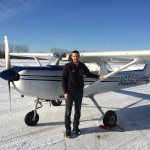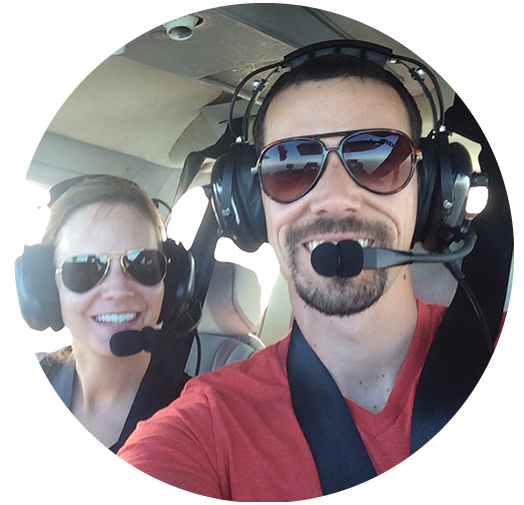On Friday Patrick and I went to the Great Lakes Aviation Conference and saw some great exhibitors and presentations. The most memorable experience there was definitely the high altitude chamber.
After signing your life away on some waiver forms you get to step directly into 28,000 ft. In aviation it’s encouraged to use supplemental oxygen at 10,000 ft and there are legal requirements on oxygen use above 12,500 ft. Most jets are flying at 18,000ft plus and your typical airliner is flying a little over 30,000 ft. We were stepping directly into some very thin air. You could start to feel the symptoms of the lack of oxygen within 30 – 60 seconds. After about 90 seconds I was struggling to do some multiple digit multiplication problems and multiple digit subtraction.
I was asked to count down from 100 by 3. It took me awhile to understand what was even being requested of me and then I failed miserably at it.
I was however able to make it through the maze on the worksheet and get a couple crossword answers.
Throughout the experiment we were asked to write down our oxygen level and heart rate. When we were in the low 60’s we were suppose to put on our mask, he says it multiple times and even after saying and writing down 64 I didn’t put my mask on. The guy towards the end is trying to coax me into putting my mask on without specifically telling me to, just to see if I’ll catch on. I don’t. I still think I’m fine and continue without the mask. Eventually he tells everyone to put their masks on and on my first attempt I put the mask on my chin, the guy had to tell me to move it up my face.
It was definitely worthwhile. I fly a naturally aspirated single so I’m not going to be getting to altitudes where this is a real concern. But, who knows, in the future I might be flying a turbo or something that can get higher and this will have been a valuable experience.

 The most common route to go if you are not looking at a career in aviation is to follow part 61 of the FAA guidelines. If you are following part 61 all you need is a certified flight instructor to spend the necessary time with you in the air and approve you for your written and practical test. The instructor has some flexibility on how they deliver the training and does not have to follow a strict agenda or routine. There are more formal flight schools who will deliver training under part 141 which will follow a rigid agenda and may be less flexible for your schedule.
The most common route to go if you are not looking at a career in aviation is to follow part 61 of the FAA guidelines. If you are following part 61 all you need is a certified flight instructor to spend the necessary time with you in the air and approve you for your written and practical test. The instructor has some flexibility on how they deliver the training and does not have to follow a strict agenda or routine. There are more formal flight schools who will deliver training under part 141 which will follow a rigid agenda and may be less flexible for your schedule.